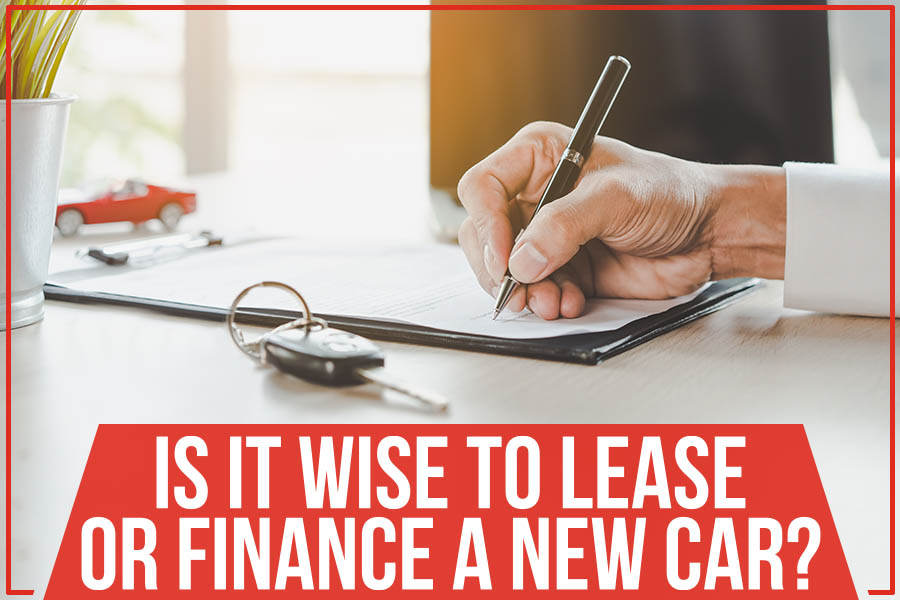
Key takeaways:
- Financing a car has some definite benefits – you own it when all is said and done and can build equity in it as you make payments.
- On the other hand, leasing can be a great option for those who want lower monthly payments and don’t mind returning the car at the end of the lease term.
- Research before leasing or Financing to get the best deal possible.
- Feldman Chevrolet of Lansing is a great place to finance your next car. We have a team of finance specialists who will work with you to get the best deal possible.
After selecting the best Chevrolet model, one of the biggest decisions you must make is whether to lease or finance it. Leasing a car has become increasingly popular recently, but is it always the best option? In this blog post, Feldman Chevrolet of Lansing will discuss the pros and cons of leasing and financing a car so that you can make a knowledgeable decision.
What Is Leasing?
During the lease period, you pay monthly payments, and at the end of it, you have the option to buy the automobile outright or return it to the dealership or the person who leased it to you.
The Upsides Of Leasing:
Lower monthly costs:
The monthly cost of car leasing is less than buying it outright because it is practically renting for a predetermined period, usually 36 months. However, there are options for different loan lengths.
When compared to financing the car’s total price, this usually results in a driver getting a higher-end vehicle for the same money. When the lease ends, the car will either be sold to repay the remaining cost for the lessor or offered to the lessees for purchase.
Warranty coverage:
Since most new cars come with at least three years of bumper-to-bumper warranty coverage, leasing a car should be hassle-free and seldom result in unexpected costs. When it’s time to relocate, there’s no need to haggle with private sellers or list the vehicle on your own.
Change cars according to your need:
Leasing a car means having a new vehicle with the newest features and styling every two or three years. Customers that want a temporary transportation option could find this suitable. For instance, a minivan could match a family’s needs while the children still use strollers and car seats. However, a stylish sedan or an SUV with stronger off-road capabilities might be a better fit after they are no longer necessary.
Down payment:
Lessees are responsible for paying taxes and registering their new vehicle, like auto buyers; however, the tax rate will vary by state. While some jurisdictions may tax down payments, most states apply sales tax to the depreciated value of the leased car.
The Downsides Of Leasing:
Short-term ownership:
Leasing a car means you’re never really the owner. In a sense, you are renting it from the dealership for a specified time. This can be seen as a con because after making all your payments, and you don’t get to keep the car.
Mileage restrictions:
Finance firms generally restrict the mileage of leased automobiles to maintain the value of their cars and keep expenses down.
Every additional mile beyond the agreed-upon amount—typically 10,000 miles—will increase your total cost. Drivers with long commutes or who frequently participate in carpools may want to think about purchasing rather than leasing because leases with 12,000 to 15,000 miles are available but will raise the monthly price. If you exceed the limit, a move or a change in commute conditions may result in high costs at the end of the lease.
Have to keep the car in good condition:
Another unanticipated cost that frequently catches drivers off guard is wear and tear. Keep your leased car in excellent condition since you might be penalized for dents, paint scratches, or inside stains. Customizations, popular among off-road and performance enthusiasts, are also prohibited since many lease agreements call for them to be taken off before the lease is due to be returned.
What Is Financing?
When a buyer gets an automobile through financing, they obtain a loan from a bank or another creditor that will last for a specific amount of time and demand regular payments that cover both the principal (the amount they owe on the car) and interest. The creditworthiness of the buyer often determines the interest rate.
Used cars and CPOs prices are now at historical highs, which helps balance some of the high pricing in 2022.
The upsides of financing:
You own the car:
Once the last payment is made, the car belongs to you. You can drive it as long as you’d like, sell it or trade it in without worrying about penalties.
Freedom to customize:
Freedom is the next advantage of owning an automobile. When you purchase a car, you have complete freedom to customize it in any way you want, travel as many miles as you want, and maintain it however you see fit. In contrast to a lease, you are not required to return the vehicle to the seller and are not liable for mileage or wear and tear-related fees.
Build equity:
Every month, a portion of your payment goes toward the principal balance of the loan, which means you own a little more of the car each time. When you have a lease, you never build any equity in the car.
Help you rebuild your credit score:
If you make all your loan or interest payments on time and keep the car until the loan is paid off, you’ll have helped rebuild your credit score. On the other hand, leasing a car impacts your credit score since you never own the car.
The Downside Of Financing:
Higher monthly payments:
Since you’re paying the complete cost of the car, your monthly payments will be higher than if you were leasing.
Risk of negative equity:
If you choose to sell or trade-in your car before the loan is paid off, you might owe more money and interest than the car is worth. This is also known as being “underwater” or “upside down” on your loan.
Depreciation:
What goes up will someday come down – and that’s true for the value of your car, too.
Once you drive a new car off the lot, it can depreciate by as much as 20% in the first year alone. So if you finance a $30,000 car, it could be worth only $24,000 12 months later.
Maintenance:
With a leased car, you’re only responsible for maintaining routine maintenance, like oil changes and tire rotations. But if you own your car, you’ll be on the hook for all repairs – big and small. That means you could face a hefty repair bill if something major goes wrong, like an engine or transmission issue.
Bottom line:
What’s best for you? Leasing or financing your next car? It depends on your needs and taste. But whichever approach you take, be sure to do your research so you can get the best deal possible.
To finance your next Chevrolet model, visit Feldman Chevrolet of Lansing, serving Battle Creek, MI. Our finance team specialist will be happy to walk you through the stages.







